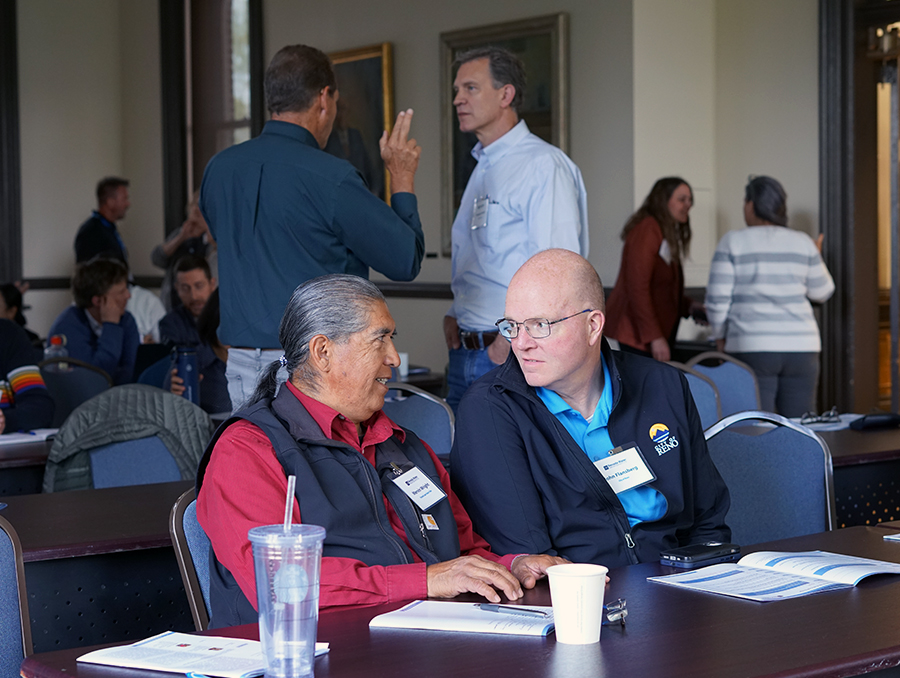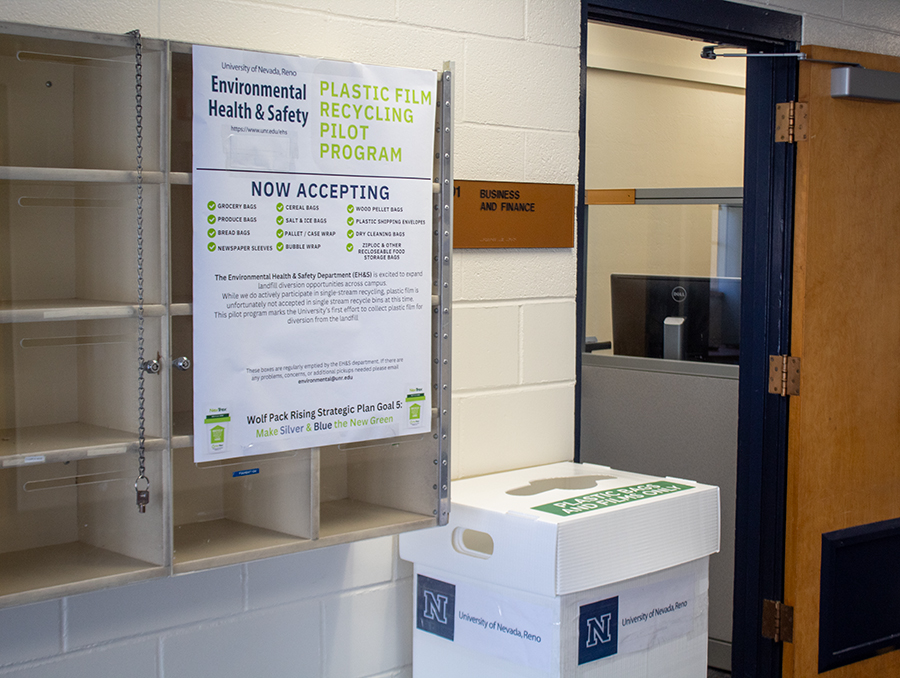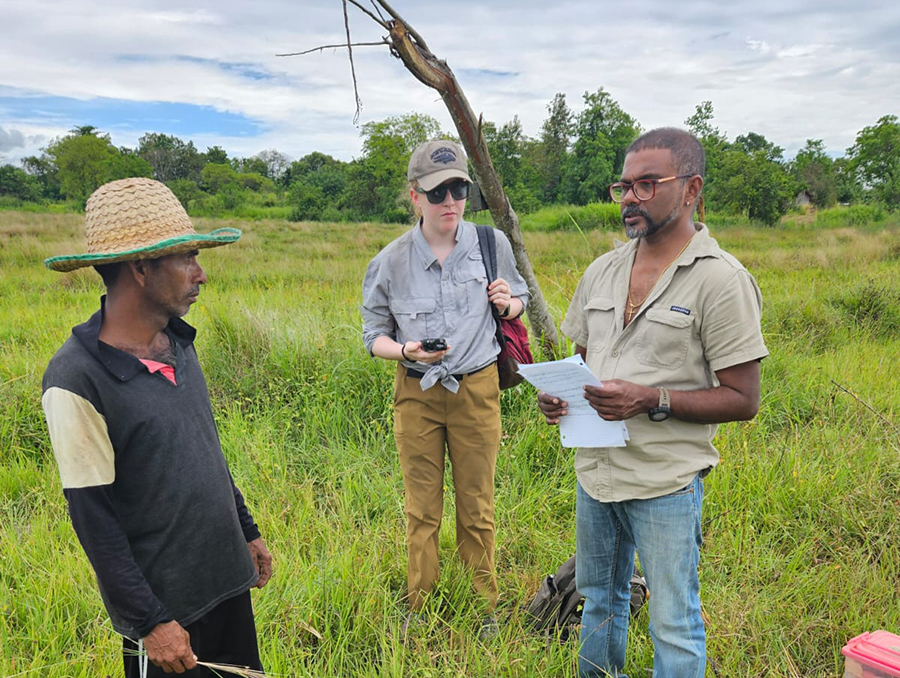The Truckee River travels 140 miles from Lake Tahoe to Pyramid Lake, supplying 80% of all drinking water to Reno, Sparks and Washoe County areas. It supports plants and wildlife and it provides recreational activities. A significant natural and cultural resource, the Truckee River and its watershed also are increasingly difficult to understand and manage as climate change and other factors affect its condition.
To address those challenges, about 55 water managers and stakeholders — including representatives from the Pyramid Lake Paiute Tribe — gathered for the Truckee Meadows Watershed Symposium April 26 at the University of Nevada, Reno. Hosted by the University’s Nevada Water Innovation Institute (NWII), the event featured faculty research presentations as well as discussion of water management issues.
Vice President of Research and Innovation Mridul Gautam opened the conference with a call for a collaborative effort in managing the Truckee River and its watershed.
“Together, let’s explore ways to protect, preserve and enhance this precious resource for generations to come,” he said.
Conference attendees, in addition to receiving information from University researchers, expressed an interest in sharing their concerns about water management.
“We need more dialog like this so everybody has the whole picture,” John Enloe, Truckee Meadows Water Authority (TMWA) director of Natural Resources Planning & Management, said.
TMWA, Washoe County and other agencies already collaborate with the NWII, led by Krishna Pagilla, Civil & Environmental Engineering Department chair and professor, on projects around water reclamation technologies, water reuse research and more.
‘The story around us is one of very large fires’
Climate change — long-terms shifts in global and regional climate patterns — was a common theme through several of the research presentations. Increasingly large wildland fires, reduction in snowpack and changes in rainfall brought on by warmer and drier conditions are some of the issues University researchers discussed.
Geological Engineering Professor Scott McCoy, in his presentation on debris flows, started at the source.
“The story around us is one of very large fires,” McCoy said.
Severe wildfires such as the Caldor and Dixie fires of 2021 — in addition to loss of life, property damage and air quality issues — can lead to increased runoff that dumps sediment into streams and rivers, as well as mudslides, also known as debris flows, that can damage property and even threaten lives.
“Our approach (to dealing with debris flow) is local preparation, warning and potential evacuation,” McCoy said.
And that’s where University research can help: new data and analyses can help water managers, land managers and public safety officials make decisions in the face of natural disasters.
Working together
McCoy was one of 10 University faculty to present on topics ranging from “Paleoclimate Perspectives on Truckee River Streamflow” to “Understanding Differences in Perceptions of Risk, Water Resources and Regional Development.”
The conference also included two discussion panels, the first of which had researchers and stakeholders laying out their primary concerns over Truckee River water. Those ranged from water supply to water quality to water rights to the public messaging around issues of conversation and growth and more. Water managers also expressed an interest in sharing their information.
“There’s a lot going on in the water planning community that needs to be shared with academia,” Kimberly Rigdon, Western Regional Water Commission program manager, said. “We are considering the science from all these studies. We would really like to work together with the community to solve some of these problems.”















